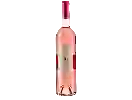
Domaine de ServansS de Servans Rosé
This wine generally goes well with pork, poultry or rich fish (salmon, tuna etc).
Food and wine pairings with S de Servans Rosé
Pairings that work perfectly with S de Servans Rosé
Original food and wine pairings with S de Servans Rosé
The S de Servans Rosé of Domaine de Servans matches generally quite well with dishes of pork, rich fish (salmon, tuna etc) or shellfish such as recipes of gloom and doom, salmon crumble or giant paella cooked on a wood fire.
Details and technical informations about Domaine de Servans's S de Servans Rosé.
Discover the grape variety: Floreal
A wine grape variety of the INRA-Resdur1 series with polygenic resistance (two genes for mildew and powdery mildew have been identified), resulting from an interspecific cross between Villaris and Mtp 3159-2-12 (for the latter, one of its parents is Vitis rotundifolia, which is resistant to Pierce's disease, mildew, grey rot, etc.). Little multiplied, it is registered in the Official Catalogue of wine grape varieties list A1.
Informations about the Domaine de Servans
The Domaine de Servans is one of of the world's greatest estates. It offers 8 wines for sale in the of Rhône méridional to come and discover on site or to buy online.
The wine region of Rhône méridional
Côtes du Rhône is a regional appellation in the Rhône Valley in eastern France. It applies to red, rosé and white wines, and includes more than 170 villages. The area follows the course of the Rhône southward for 125 miles (200 km) from Saint-Cyr-sur-le-Rhône to Avignon. A small portion of the wines in the appellation are white wines.
The wine region of Rhone Valley
The Rhone Valley is a key wine-producing region in Southeastern France. It follows the North-south course of the Rhône for nearly 240 km, from Lyon to the Rhône delta (Bouches-du-Rhône), near the Mediterranean coast. The Length of the valley means that Rhône wines are the product of a wide variety of soil types and mesoclimates. The viticultural areas of the region cover such a distance that there is a widely accepted division between its northern and southern parts.
The word of the wine: Rimage
"Vintage", in Catalan. A natural sweet wine that is bottled early to preserve its fruitiness, as opposed to those aged in an oxidizing environment (see this word). Syn.: vintage (for maury, port).














